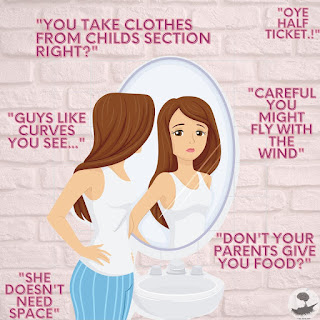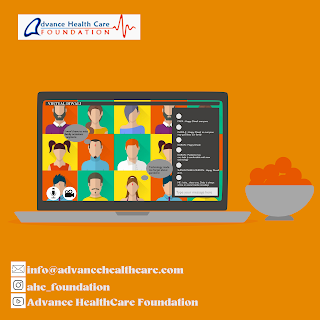Eating Disorders
Eating Disorders
Eating disorders are characterized by unusual and bad
habits related to eating. During an eating disorder, people usually
become obsessed with body weight , diet or body shape
which can cause serious illness that may even cause death.
At least 13% of young people by the age of 20 suffer from some type of eating disorder. However with proper treatment, people can recover.
Types
of Eating Disorders :-
- BULIMIA NERVOSA
- BINGE-EATING DISORDER
- ANOREXIA NERVOSA
Bulimia Nervosa:- This disorder causes a fear of obesity. In this case, people most commonly worry about their body weight and body shape. People see the flaws in their body and keep evaluating themselves. Due to this harsh judgement of the body, people try to reduce their weight by excessive exercise.
Binge-Eating Disorder:- In this disorder, people eat too much and in an uncontrollable manner. People feel like ‘binge-eating’ as if it will provide them comfort. Generally, after getting over of the hunger, patients keep on eating until they feel restless.
Anorexia Nervosa:- In the case of Anorexia Nervosa, people worry about weight gaining or weight loss and create the impression of being unusual in body weight and size. In this case people try hard to control their weight and shape, which badly affects their health and life activities.
Symptoms of Eating Disorders:-
- Preoccupation with feeling fat
- Excessive exercise
- Abnormal electrolyte levels
- Intense fear of gaining weight
- Unusually large intake of food
- Anxiety around or avoidance of eating
Symptoms of Bulmia Nervosa:-
Ø Low
self-esteem
Ø Fear
of gaining weight
Ø Self-Induced
Vomiting
Ø Depression
Ø Complaining
about body shape
Ø Feeling
shame when eating
Symptoms of Binge-Eating Disorder:-
Ø Eating
–large amount of food frequently
Ø Eating
in Secret
Ø Bing-eating
despite not feeling hungry
Ø Unable
to control eating
Ø Feeling
of stress, shame, disgust, or guilt due to the binging.
Ø Becoming
overweight
Symptoms of Anorerxia Nervosa
Ø Believing
they are overweight instead of being normal and comparing with others of the
same age and height.
Ø Obsession
with counting every calorie
Ø Restricting
of intaking of food
Ø Fear
of gaining weight
Ø Excessive
Exercise
Ø Fast
and crash dieting
Causes of Eating Disorders
Ø Genetics
Ø Age
(teens and early twenties)
Ø Excessive
Dieting
Ø Psychological
health
Ø Anxiety
Ø Depression
Ø Impulsive
behavior
Ø Life
transitions
Ø Extracurricular
activities
Ø Obsessive
Compulsive –Disorder
Prevention of Eating Disorder:-
Ø Avoid
talking about dieting in front of kids
Ø Parents
should be a role model for their kids and save their child from being a patient
of eating disorder
Ø Talk
to the kids and make the feeling of healthy body
Ø Stop
judging yourself with others for body weight and shape
Ø Avoid
the articles and advertisements which make you feel bad about your body weight
and shape.
Ø Everyone
is their own beautiful and weight does not make you who you are.
Ø Speak
out about your issues
Ø Confide
within trusted friends and family
Complications of Eating Disorder
Ø Physical development problems
Ø Constipation
Ø Losing control on yourself from eating
Ø Drug abuse
Ø Thinking of Suicide
Ø Deaths
( By Garima Kaushik, Volunteer, Editorial Dept. Advanced Healthcare Foundation)



Comments
Post a Comment